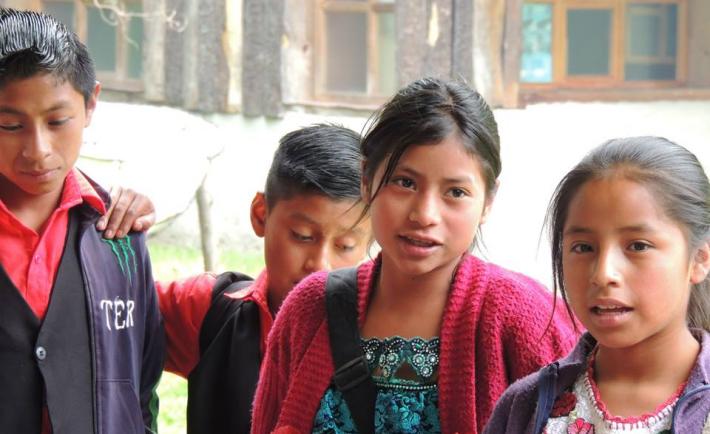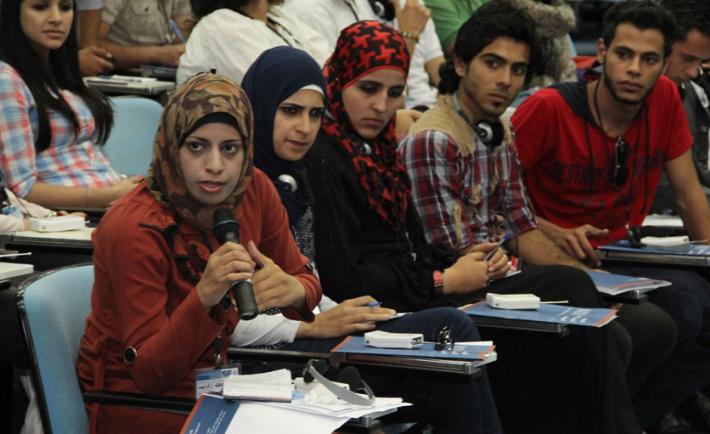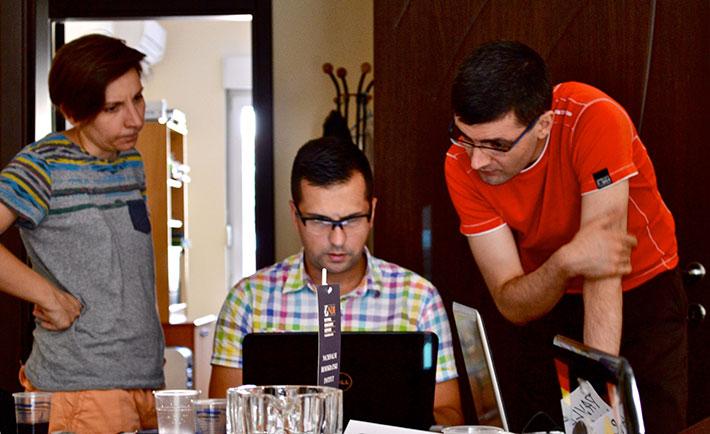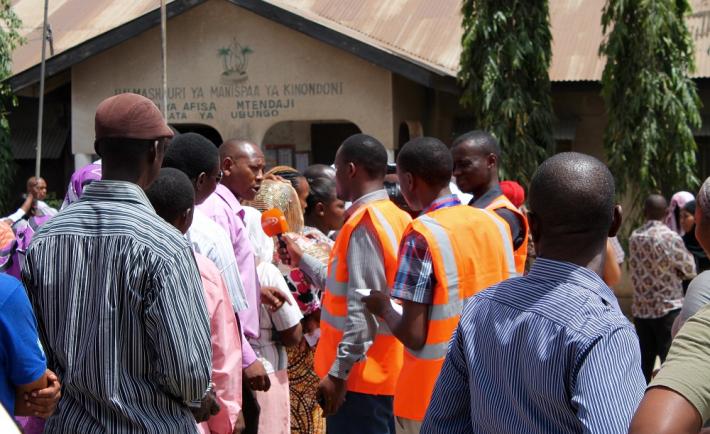Equal participation of citizens in politics is essential for strengthening democracy. Citizen participation must be inclusive, representative and intercultural. One of the foundations of democracy is respect for human rights, which includes recognition of individual and collective rights of indigenous peoples. And one of these collective rights lies precisely in the use of indigenous languages. This is especially true in Guatemala, where indigenous peoples represent a large and diverse, but frequently marginalized, population.
The Importance of Mayan Languages in Constructing a Democratic Society in Guatemala
Four New Resources for Implementing Politically Smart and Culturally Informed Programs
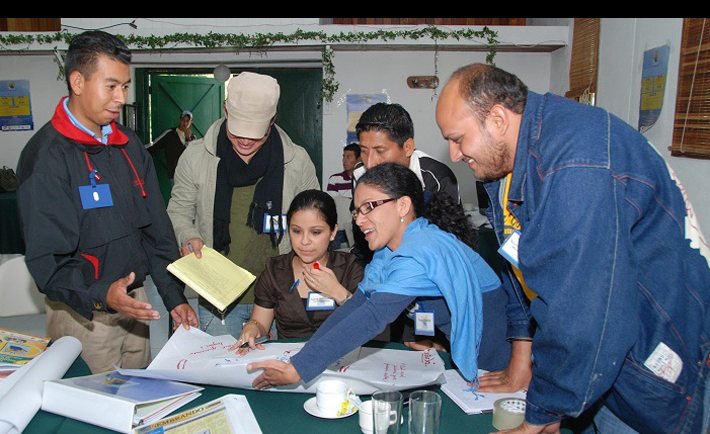
During the strategic planning session of NDI Nicaragua's Certificate in Leadership and Political Management (CLPM) program, a group of participants from several civil society organizations (CSOs) work together to create a problem tree.
Each week NDI’s Citizen Participation team provides a resource to assist NDI staff in meeting the objectives of their programs. This past month’s resources analyzed how to make politically informed decisions when implementing development programs, outlined key principles to guide the effective use of Theories of Change, conveyed evidence-based recommendations on the dynamic between democratization initiatives and violent conflict, and reviewed how digital information and communications technologies (ICTs) can impact development and inequality. These resources provide CSOs and practitioners with tools and insights for implementing politically smart, culturally informed and effective development practices and programs.
The Role of Citizens in Democracy

Having just voted for the presidential elections in July 2014, voters in Jakarta’s Senin district show their inked fingers. Photo by Telibert Laoc
Sovereignty resides in and flows from the people of a country. They have a collective right to choose their governmental, political and electoral systems as an aspect of self-determination. The authority of government derives from the will of the people in their choice of these systems, and the people have a right to take part in their government – including through genuine elections to determine who is to legitimately occupy governmental offices.
Who Are the Roma? A Personal Reflection
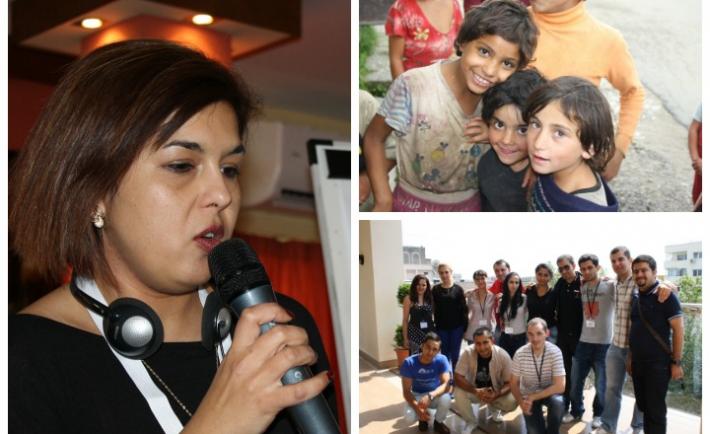
Left: a Slovak Roma activist at an NDI advocacy training. Top Right: Roma Children in a segregated Slovak settlement. Bottom Right: Youth activists at an NDI training on media and Information Communications Technologies (ICTs) in advocacy.
April 8 is a special day. It’s a day when more than 10 million Romani citizens worldwide celebrate their rich culture, traditions, and heritage. And this year, it marks exactly 45 years since the First World Romani Congress, which took place in Orpington, England. On April 8, 1971, 23 representatives of nine countries and numerous observers formed the International Roma Union - an organization to represent Roma policy and interests worldwide - and adopted an official Roma flag and the Roma anthem, Djelem, Djelem.
But who are the Roma?
Four New Resources for Strengthening Citizens’ Skills and Capacity
Each week NDI’s Citizen Participation team provides a resource to assist NDI staff in meeting the objectives of their programs. This past month’s resources analyzed the process of building advocacy skills, the transformative potential of online videos for training, and a range of tactics and interventions that citizens and civil society can use to hold governments to account. These resources provide tools and insights that can help citizens strengthen their ability to effectively engage in political processes and bring about social and political change.
High Five for Team Dignity: International Development through the Eyes of a Community Organizer
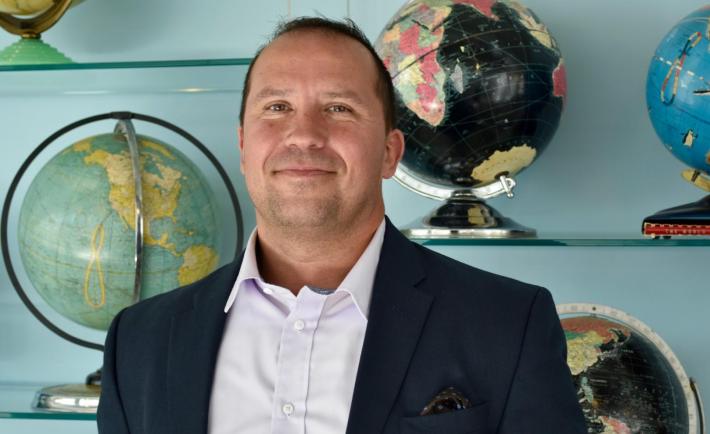
Fabricio Rodriguez is a veteran community organizer for employee rights, who began organizing 15 years ago while working at a sub-surface mine.
An important focus of our work here NDI for the past few years has been to find ways to help democracy deliver on the promise to improve the quality of life for people. In practical terms this has led some programs to grapple more explicitly with issues that address day to day concerns of people, such as education and healthcare. The way we see it, bringing about social change is inherently political, and the kind of skills and experiences that are imparted in an NDI program often lend themselves to these practicalities.
Being LGBTI in Serbia: Can you walk out your door and be proud of who you are?
At a local Belgrade bar in September 2015, a group of assailants attacked a young LGBTI activist named Dragoslava Barzut while she was spending the evening with friends. No one stood up to protect Barzut and her friends that night. She continued to receive threats following the attack. Despite the attack and threats, asylum abroad was not an option for Barzut. She will not leave her country as long as she can be an agent for change even though she feels wary while on public transportation and nervous during her daily commute to work. “I'm not staying here because Serbia is an ideal place for someone like me to live,” she said, “but I deeply believe that if I don’t leave, one day it may be. My fight is here.”
A Grassroots Perspective on Thinking and Working Politically in International Development
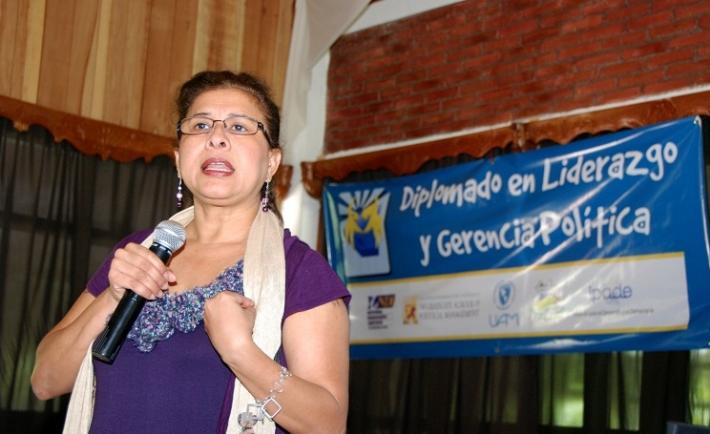
NDI's Nicaragua project is developing a community organizing component to complement youth leadership training through the Certificate in Leadership and Public Management.
More and more evidence suggests that politics matters for development, and that there is a need to do development differently by thinking and working politically. This refrain is intensifying and fueling efforts by donors, practitioners, and local partners to put this emerging approach into practice. But understanding the politics of change is only one part of the equation. Changing the politics is the other, more challenging part, especially when there are existing gaps in government transparency and accountability. Those of us working in the democracy and governance arena deal with this reality on a daily basis and have found some viable approaches when it comes to working politically.
Four New Resources for Strengthening Citizen Participation and Inclusion

A representative of civil society raises a question during the panel discussion held by Election Observation Coordination Group (EOCG) members in Nepal. Credit: Sr. Program Assistant Neha Shreshta/ NDI
Each week NDI’s Citizen Participation team provides a resource to assist NDI staff in meeting the objectives of their programs. This past month’s resources analyzed how citizens can counter corruption through nonviolent action, how to build a coalition in order to launch a successful campaign, social auditing to increase government accountability, and the debates and challenges of disability inclusion in development.
Four New Resources for Assisting Citizens in Diverse Political Contexts
Each week NDI’s Citizen Participation team provides a resource to assist NDI staff in meeting the objectives of their programs. This past month’s resources analyzed the relationship between minority groups and extreme poverty, ways in which authoritarian governments control the media, steps to increase women’s political participation and real-life lessons on how democracies can take hold.

